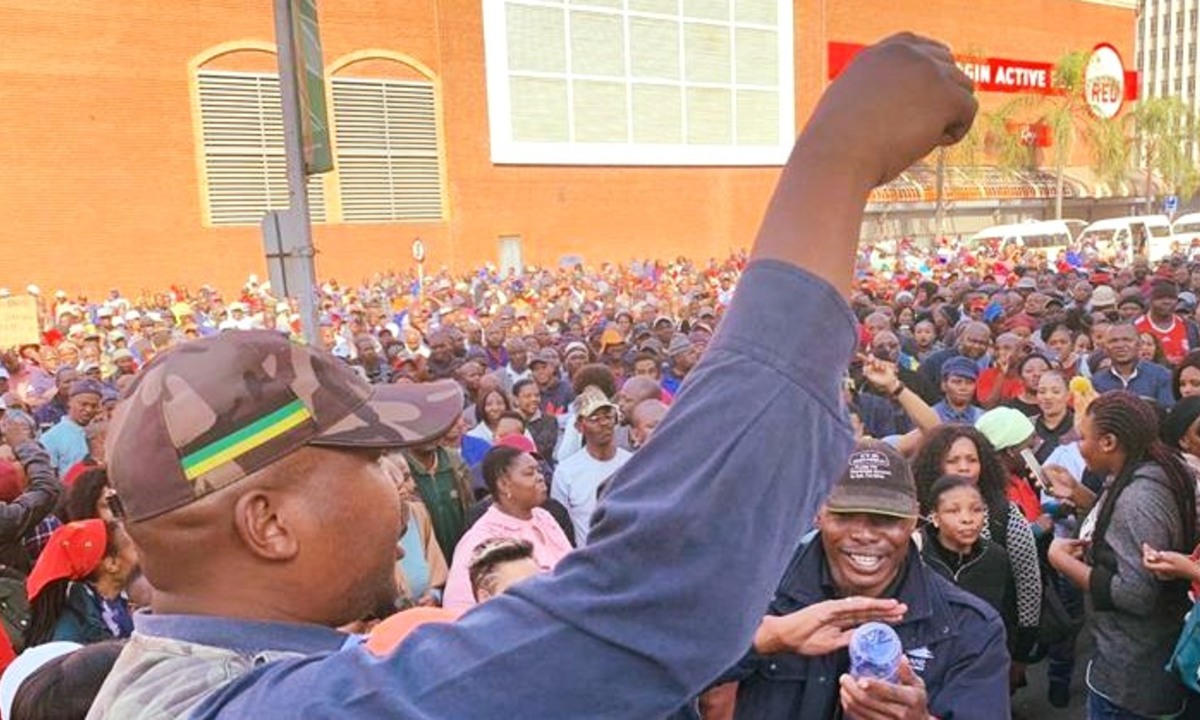News
Mayor Cilliers Brink’s Efforts to Revive Tshwane Metro’s Finances Face Union Opposition

Mayor Cilliers Brink’s proposals to revive the ailing finances of the Tshwane metro have already ignited a battle with unions over the annual wage increase. Brink’s strategy to rescue the metro’s dire financial situation involves putting a halt to wage increases for the upcoming financial year. This decision stems from the metro’s looming risk of bankruptcy if it fails to rectify its financial affairs. In an interview with Rekord, Brink emphasised the need for cost-reduction measures to prevent Tshwane from spiralling into financial ruin, and he argued that exempting wage increases was essential to sustain service delivery.
Brink pointed out that previous salary hikes for permanent workers and councillors had depleted the city’s finances. He acknowledged that no one enjoys the absence of a salary increase, but politicians had not budgeted for such increments either. Brink had previously warned that annual salary increases accounted for approximately 39% of Tshwane’s budget. Therefore, if Tshwane had not allocated funds for salary increases by May 17, an application for formal exemption based on the city’s financial position would be the next step. The bargaining council would determine the decision and could involve legal proceedings if necessary.
Brink acknowledged the financial burdens faced by Tshwane’s employees, who are also residents of the city, but he reiterated that these measures were aimed at benefiting the city as a whole. He pledged not to violate any collective agreements and stated that the city manager would lead discussions with trade unions. Lynette Burns-Coetzee, the regional manager of the Independent Municipal and Allied Trade Union (Imatu), expressed her union’s intention to contest the exemption application concerning the wage increase for the next financial year. In addition, burns-Coetzee voiced her dismay at the announcement that there would be no wage increase in July 2023.
Also Read: Union threatens consequences over healthcare demands
She criticised the decision, stating that it was not the first time their members would be denied a raise, and it was a grave injustice. As prices rise and the cost of living soars, the income of their members remains stagnant, failing to keep up with inflation. Burns-Coetzee argued that this was not the first potential salary reduction that metro staff might face if Tshwane had its way. She believed that the metro could afford wage increases if it scaled back on some of its contracted services. According to her, the administration was demanding too much from workers by expecting them to continue working without an increase.
She highlighted the metro’s annual spending on service providers, which amounts to billions of rands, while the outdated or broken vehicles and equipment hindered their members’ work. Burns-Coetzee further criticised the implementation of the metro’s performance management plan, which tied salary escalation to employee performance. She made it clear that Imatu Tshwane, along with the national office, would vehemently oppose the exemption application. Burns-Coetzee emphasised that this was a recurring issue and revealed that the matter was currently before the Labour Court.
Expressing disappointment, she remarked that it was disheartening to witness Tshwane’s lack of empathy towards its most valuable asset, its human capital. On May 11, the South African Municipal Workers Union (Samwu) also submitted a memorandum addressing wage concerns to the Gauteng premier and MEC for Cogta.
Source: LISTEN: Unions gearing for fight as Tshwane metro says there’s no money for annual increase
Also Read:
Outrage as police trainees forced to make their own transport plans – union speaks out!
Photo: Facebook / @Rekord

















